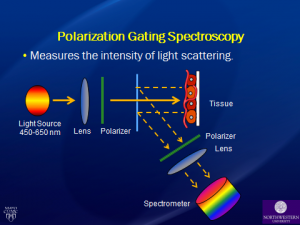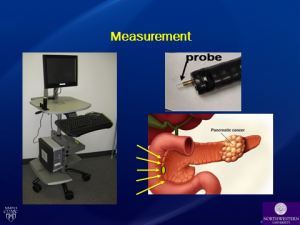-
Cancer
Routine Endoscopy May Be Able to Detect Pancreatic Cancer
Shining a tiny light in the small intestine, close to where it meets with the pancreas, can help detect pancreatic cancer. In a small study at the Mayo Clinic campus in Florida, physicians have been able to detect the cancer 100 percent of the time. The light, attached to a probe, measures changes in cells and blood vessels produced by a growing cancer in the adjoining pancreas.
Chair of the Division of Gastroenterology at Mayo Clinic in Florida, Michael Wallace, M.D., M.P.H. says, “No one ever thought you could detect pancreatic cancer in an area that is somewhat remote from the pancreas, but this study suggests it may be possible.”
Dr. Wallace is highlighting the findings in an address during international Digestive Disease Week 2012.
Soundbites with Dr. Wallace are available in the downloads above.
Expert title for broadcast: Dr. Michael Wallace, Mayo Clinic Gastroenterologist
Read EMBARGOED news release: 5.21.12_Pancreatic Cancer Probe-Wallace









